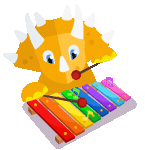The Big Benefits of Learning a Second Language Early
Many students take second language classes in school, but by the time they graduate, most can barely remember what they learned. So how can you help your child become truly bilingual? The answer is simple: start early.
Children’s brains are built for learning, especially in their early years. Here are three key reasons why early exposure to a second language makes a big difference.
Young Brains Are Like Sponges
When kids are young, their brains are naturally more open to learning. According to researchers at Columbia University, the prefrontal cortex—the part of the brain that helps with decision making and behavior—is still developing. This actually makes younger children more flexible, imaginative, and curious. Since much of the world is still new to them, learning a language feels just like learning anything else.
Young children also have more synapses, which are the brain’s message pathways. These extra connections help kids absorb information faster and more deeply than adults. As children grow older, some of these connections fade, and learning becomes less automatic. That’s why starting early gives children the best chance to pick up a new language naturally and confidently.
Language Learning Supports Academic Success
Bilingual children often do better in school. Research shows that kids who speak more than one language tend to score higher on standardized tests and develop stronger reading and writing skills—even in their first language.
A 2007 report from the College Board found that students who studied a foreign language for four years or more scored about 140 to 150 points higher on each section of the SAT compared to students who didn’t. That’s a huge difference that can open doors for college and beyond.
Language Builds Social and Cultural Skills
Learning a new language is more than just memorizing words—it’s also about understanding other cultures. In a diverse country like the United States, this kind of cultural awareness helps kids connect with others from different backgrounds. It also teaches them empathy and helps them see the world from different perspectives.
Children who grow up learning multiple languages often develop stronger problem-solving skills and become more focused thinkers. These qualities can boost their confidence and help them succeed socially and emotionally.
How Dinolingo Makes It Fun
One of the best ways to support your child’s language journey is through Dinolingo. Dinolingo offers interactive lessons in more than 50 languages for kids aged 2 to 14. With games, songs, videos, and stories, children stay engaged and have fun while learning. The platform works on web, iOS, and Android devices, and it includes printable worksheets, offline learning options, a parent dashboard, and reward-based motivation systems—all designed to support every type of learner.
Conclusion
Learning a second language early in life can open up a world of opportunities. It helps children develop better thinking skills, succeed in school, and relate to others more deeply. With the right tools and consistent practice, any child can become bilingual—and it all starts with exposure, fun, and encouragement from day one.
Start Learning a New Language Today!
Best Language App for Kids.
7-day free trial. Then only $19/month. Cancel anytime.
